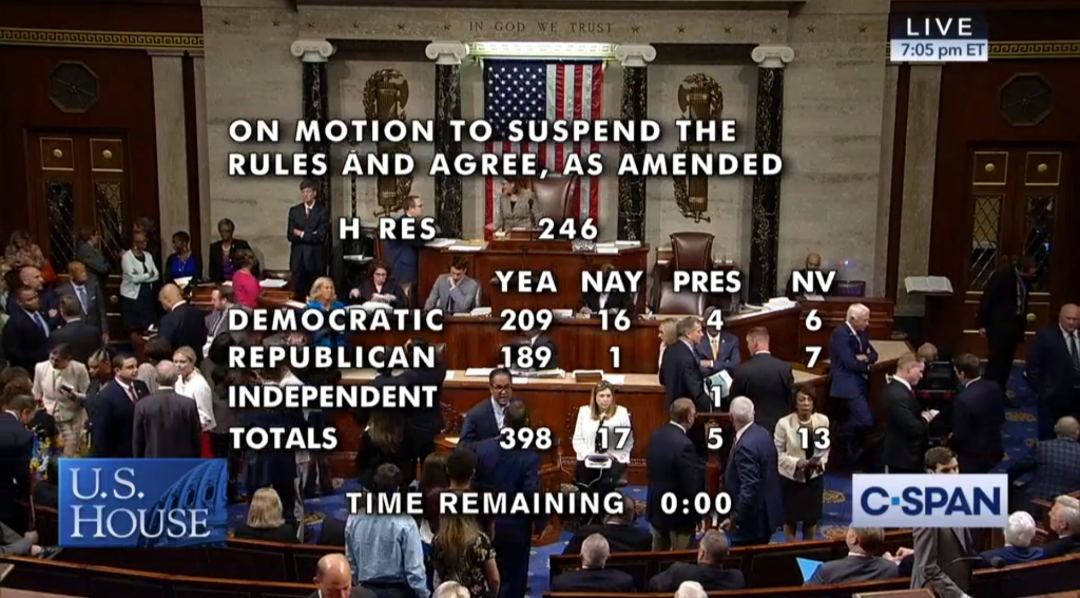Jason D. Greenblatt (U.S. Mission to the UN): U.S.: The Israeli-Palestinian Conflict Will Not Be Decided by International Consensus or International Law
Assistant to the President and Special Representative for International Negotiations Jason D. Greenblatt told the UN Security Council on Tuesday:Greenblatt: Palestinian Aspirations for Jerusalem Don’t Constitute a Right
"This [Israeli-Palestinian] conflict will not end on the basis of an 'international consensus.'...Those who continue to call for international consensus on this conflict are doing nothing to encourage the parties to sit down at the negotiating table and make the hard compromises necessary for peace. In fact, they are doing the opposite - allowing people to hide behind words that mean nothing."
"Let us not forget that day when the United Nations could not even find a way to build an international consensus behind the fact that Hamas is a terrorist organization that relentlessly attacks Israelis by incendiary balloons, missiles, attack tunnels and other means, sometimes while hiding in residential neighborhoods filled with Palestinian families. Hamas, which ghoulishly holds [the remains of] Israeli soldiers Hadar Goldin and Oron Shaul as bargaining chips. Hamas, which...continues to vow to destroy Israel."
"And how is it that we can't find an international consensus that the Palestinian Authority rewarding terrorism and the murder of Israelis using public funds, some donated by countries in this very room, is abhorrent and must be stopped."
"This conflict is also not going to be resolved by reference to 'international law' when such law is inconclusive....There is no judge, jury, or court in the world that the parties involved have agreed to give jurisdiction in order to decide whose interpretations are correct."
"The same holds true for the status of Jerusalem....No international consensus or interpretation of international law will persuade the United States or Israel that a city in which Jews have lived and worshipped for nearly 3,000 years and has been the capital of the Jewish State for 70 years, is not - today and forever - the capital of Israel."
"Let us not lose sight of the fact that Israel has already conceded at least 88% of the territory captured by Israel in the defensive war it had no choice but to fight in 1967."
"The dispute over the territory is a question that can only be resolved in the context of direct negotiations between the parties. And I am focused on how to get those parties back to that table."
The Palestinian aspiration to a have a capital in Jerusalem is “not a right,” and “international consensus is not international law” when it comes to creating a Palestinian state, said US Middle East envoy Jason Greenblatt on Tuesday.US House overwhelmingly passes anti-BDS resolution
“It is true that the PLO and the Palestinian Authority continue to assert that east Jerusalem must be a capital for the Palestinians,” Greenblatt told the UN Security Council, “but let’s remember—an aspiration is not a right.”
Addressing a regularly scheduled UNSC on “the situation in the Middle East,” Greenblatt said that “international consensus is not international law. So let’s stop kidding ourselves. If a so-called international consensus had been able to resolve the Israeli-Palestinian conflict, it would have done so decades ago. It didn’t.”
Greenblatt emphasized the limitations of international law in putting an end to the decades-long conflict, arguing that past UN resolutions have been “heavily negotiated, purposely ambiguously worded,” that Israelis and Palestinians have different interpretations of the law and that neither has recognized the jurisdiction of any international court.
The US House of Representatives overwhelmingly passed a resolution on Tuesday that rejects the Boycott, Divestment and Sanctions (BDS) campaign against Israel, after some Democrats expressed concern last week that the measure could cause infighting within the party leading up to the 2020 election.
The bill — formally known as House Resolution 246 — also calls for increased security aid to Israel and a two-state solution. It passed by a vote of 398-17, with five abstentions.
Sixteen Democrats opposed the bill, including representatives Rashida Tlaib of Michigan and Ilhan Omar of Minnesota, the first two Muslim women elected to Congress. Both support the BDS movement.
One Republican, Rep. Thomas Massie of Kentucky, voted against the resolution.
The measure “opposes the Global Boycott, Divestment, and Sanctions Movement (BDS Movement) targeting Israel, including efforts to target United States companies that are engaged in commercial activities that are legal under United States law, and all efforts to delegitimize the State of Israel.”
It also says that the BDS campaign “undermines the possibility for a negotiated solution to the Israeli-Palestinian conflict by demanding concessions of one party alone and encouraging the Palestinians to reject negotiations in favor of international pressure.”
Democratic Rep. Brad Schneider of Illinois originally sponsored the resolution, which had gained 349 co-sponsors by the time it was voted on.



































.jpg)


